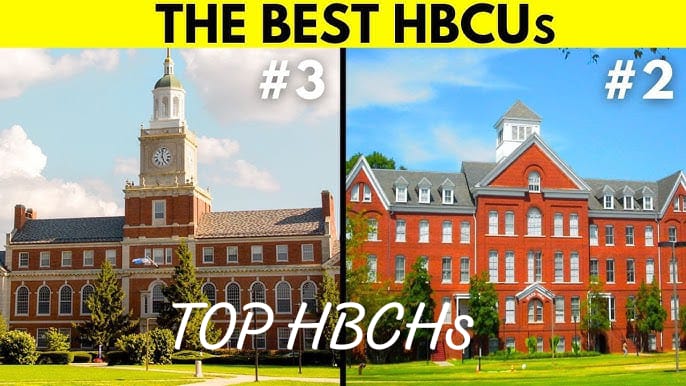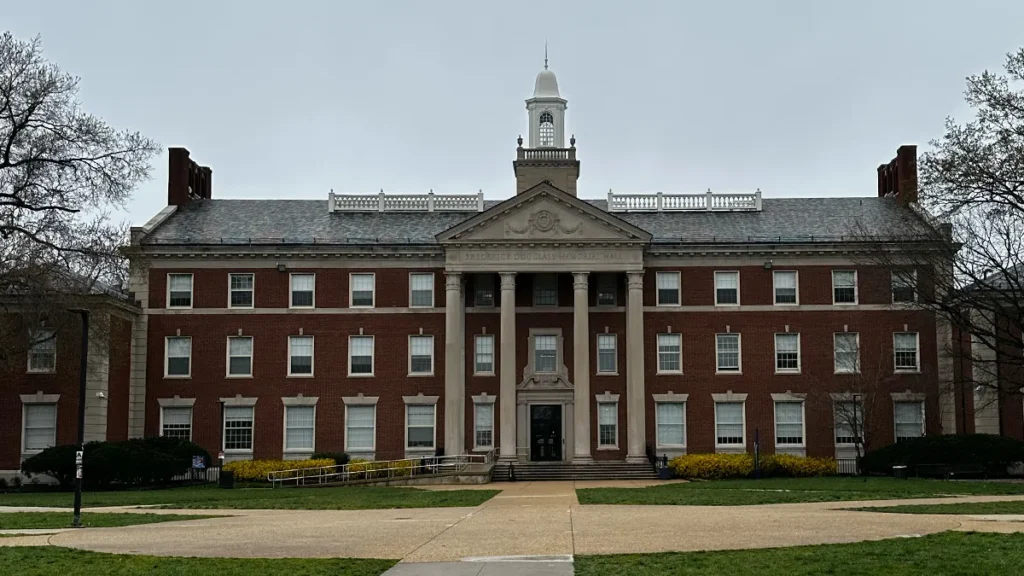Top HBCUs: A Deep Dive into Historically Black Colleges and Universities

Introduction: Why HBCUs Matter More Than Ever
Historically Black Colleges and Universities, more commonly known as Top HBCUs, hold a significant place in American history and education. Founded primarily in the 19th century, these institutions were built to provide African Americans with access to higher education during a time when most mainstream colleges and universities were closed off to them. Over the decades, HBCUs have not only produced generations of leaders, scholars, and innovators, but they have also preserved a culture of resilience, community, and excellence that remains strong today.
In today’s world, conversations about diversity, equity, and inclusion have taken center stage. Top HBCUs are living, breathing examples of what it means to create opportunities against the odds. These schools have served as safe havens for students of color, offering not only education but also mentorship, cultural grounding, and a sense of belonging. For many, HBCUs represent more than just a degree—they represent legacy, identity, and pride.
As we explore the top Top HBCUs, it’s important to remember that “top” isn’t just about rankings or endowment sizes. It’s about influence, impact, and the holistic experience these institutions provide. Whether through groundbreaking research, powerful alumni networks, or their role in shaping culture and civil rights, Top HBCUs deserve recognition not just for their past, but for their ongoing contributions to society.
The Legacy and Importance of Top HBCUs

To understand the value of top HBCUs, we first need to revisit their roots. The majority of these institutions were established after the Civil War, when newly freed African Americans were eager to gain education but faced systemic barriers. Institutions like Howard University (founded in 1867) and Spelman College (founded in 1881) were built as beacons of hope in a landscape of inequality. They weren’t just schools—they were symbols of progress and possibility.
The importance of Top HBCUs goes beyond academics. These institutions have always played a central role in community leadership, social justice, and cultural preservation. Many key figures in the Civil Rights Movement, including Dr. Martin Luther King Jr. (Morehouse College), Thurgood Marshall (Lincoln University and Howard University School of Law), and Katherine Johnson (West Virginia State University), were products of HBCUs. Their influence demonstrates that these schools produce not only educated graduates, but also change-makers who impact the world at large.
Even today, Top HBCUs remain critical to the nation’s education system. According to data, although HBCUs make up only about 3% of all colleges and universities in the U.S., they produce nearly 20% of African American graduates. They also play a major role in producing Black doctors, lawyers, engineers, and educators. This disproportionate impact highlights why the conversation around top HBCUs is not just academic—it’s deeply cultural and societal.
What Makes an Top HBCUs?
When people talk about the Top HBCUs they often think of national rankings from outlets like U.S. News & World Report or Forbes. These lists typically measure factors like graduation rates, financial stability, faculty resources, and alumni success. But for Top HBCUs being “top” is about more than statistics. It’s also about the unique blend of academic excellence, cultural empowerment, and lifelong community support that they provide.
One key factor that sets top Top HBCUs apart is their strong sense of identity and culture. At these institutions, students often describe feeling “seen” and celebrated in ways that are rare in predominantly white institutions (PWIs). The curriculum, traditions, and campus life reflect African American history and culture, which gives students both confidence and a deeper connection to their roots. That cultural reinforcement plays a major role in student success.
Another distinguishing element of Top HBCUs is their alumni network. From business leaders to entertainers to politicians, HBCU graduates often describe their networks as “family.” Alumni don’t just offer job opportunities; they offer mentorship, guidance, and community support long after graduation. That sense of connection amplifies the impact of the degree, which is part of what makes these schools truly stand out.
Highlighting the Top HBCUs
Howard University
Often referred to as the “Mecca” of Top HBCUs, Howard University in Washington, D.C. has consistently ranked among the best. Known for its strong programs in law, medicine, and the arts, Howard has produced a long list of influential alumni, including Vice President Kamala Harris and author Toni Morrison. Its central location in the nation’s capital also gives students access to internships and networking opportunities that are second to none.
Spelman College
Located in Atlanta, Georgia, Spelman College is one of the top women’s colleges in the nation, not just among Top HBCUs. Known for its focus on empowering women of African descent, Spelman consistently ranks highly for academic rigor and graduation rates. Its strong emphasis on leadership, sisterhood, and service makes it one of the most respected institutions for shaping future leaders.
Morehouse College
Top HBCUs Also in Atlanta, Morehouse College is the only all-male historically Black college in the United States. It’s internationally recognized for producing leaders, particularly in fields such as politics, business, and activism. From Dr. Martin Luther King Jr. to filmmaker Spike Lee, Morehouse’s alumni reflect a tradition of excellence and social influence that continues to inspire generations.
Florida A&M University (FAMU)
Florida A&M University in Tallahassee is one of the largest Top HBCUs in terms of enrollment. Known for its strong programs in pharmacy, business, and engineering, FAMU has long been celebrated for its innovation and research. Its marching band, the Marching 100, is also world-famous, bringing additional cultural pride to the school’s identity.
North Carolina A&T State University
North Carolina A&T is another powerhouse, especially in STEM fields. It is the nation’s largest Top HBCUs and has built a reputation for producing more African American engineers than any other school in the country. Its strong research programs and vibrant campus culture make it one of the most dynamic HBCUs today.
The Cultural and Social Impact of Top HBCUs
What truly makes top HBCUs special isn’t just their academics—it’s the culture. HBCUs are famous for their homecomings, marching bands, Greek life, and traditions that bring students and alumni together in celebration of heritage and excellence. These cultural elements create an environment where students feel at home and deeply connected to their peers.
HBCUs have also been central to social movements. From the Civil Rights Movement to today’s conversations around racial justice, Top HBCUs students and alumni have often been at the forefront. Their campuses serve as spaces where critical conversations about equity, justice, and representation are encouraged and amplified.
Additionally, HBCUs nurture creativity and innovation in ways that shape American culture. The music industry, for example, has been heavily influenced by Top HBCUs culture, from the marching band style to the rise of artists who proudly represent their alma maters. These cultural exports make HBCUs not just educational institutions but cultural icons.
The Future of Top HBCUs
While HBCUs have accomplished so much, they also face challenges such as underfunding and resource disparities compared to larger institutions. Yet, despite these hurdles, their resilience continues to shine. With growing attention from the federal government, corporations, and philanthropic organizations, HBCUs are beginning to receive more support than in the past.
The future of top HBCUs looks promising. As society becomes more conscious of the importance of diversity and representation, HBCUs are gaining recognition for the vital role they play. Investments in infrastructure, technology, and scholarships are helping these schools expand their reach and impact.
In many ways, the renewed spotlight on HBCUs represents a full-circle moment. Once created out of necessity, they are now being celebrated as models of excellence, community, and perseverance. For students considering where to pursue higher education, the top HBCUs offer not only quality academics but also an experience that is rich in history, culture, and purpose.
Conclusion: Why Choosing a Top HBCU Matters
Choosing a top HBCU is about more than getting a degree—it’s about becoming part of a legacy. These institutions provide the kind of support, mentorship, and cultural grounding that helps students thrive both academically and personally. They create spaces where excellence is expected, where identity is celebrated, and where lifelong connections are formed.
The top HBCUs are proof that education isn’t just about classrooms and textbooks—it’s about shaping leaders, innovators, and trailblazers. Whether you’re looking at Howard, Spelman, Morehouse, FAMU, or North Carolina A&T, you’ll find institutions that have not only stood the test of time but continue to shape the future.
So, when we talk about the “top HBCUs,” we’re not just talking about rankings. We’re talking about legacy, culture, and impact. And that’s what makes them truly top-tier in every sense of the word.



